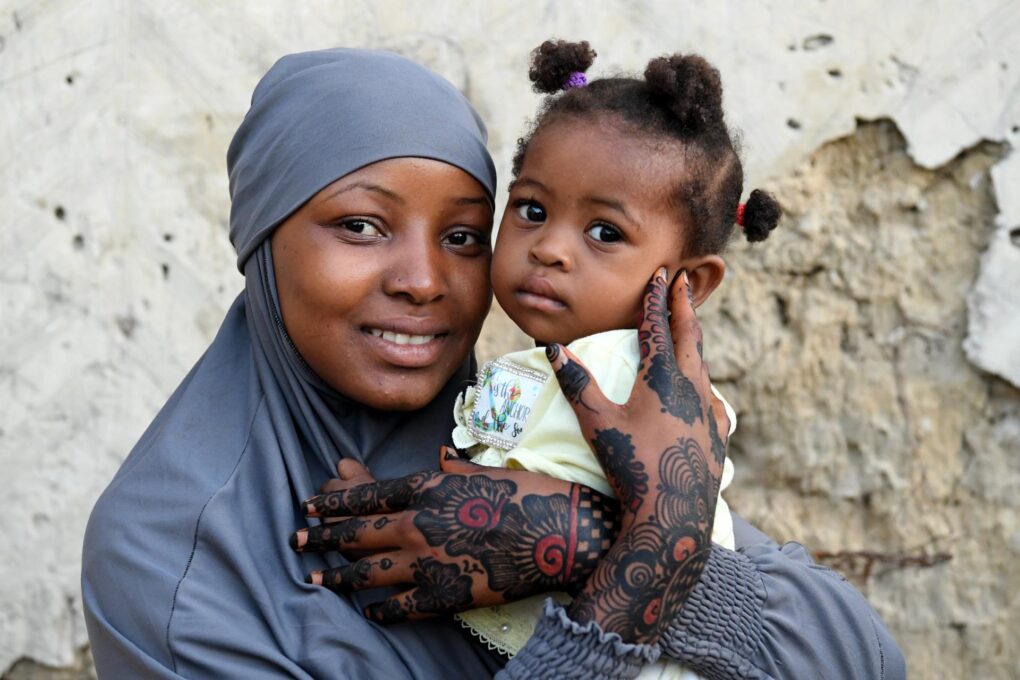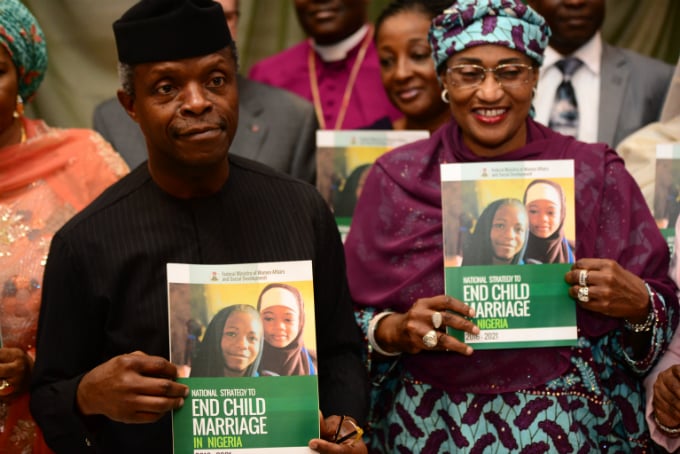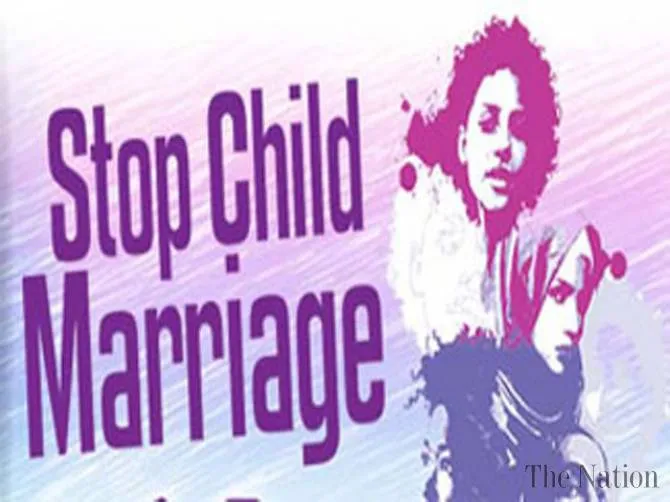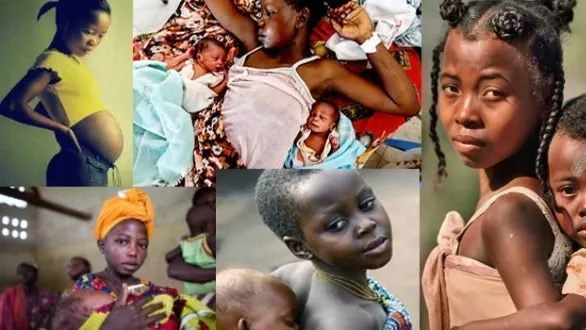Child marriages in Nigeria not only restrain individual human rights but enable poverty and inequality for an entire community and country. While the occurrence of child marriage has gone down worldwide, from one in four girls married ten years ago to around one in five today. The tradition is prevalent all over the world.

Prior to the COVID-19 pandemic, more than 100 million girls were likely to marry before they turned 18 in the next decade. Now, about 10 million more girls will be in danger of turning out to be child brides as a cause of the pandemic.
What is Child Marriage?
UNICEF describes a child as any individual under the age of 18 while child marriage refers to “any official marriage or unofficial marriage between a child and an adult or another child.” UNICEF calculated that about 12 million girls get married every year, and the globe has over 650 million girls married as children.
READ ALSO:
The Highest Happiness On Earth Is Marriage- Teebillz
Why Marriages Struggle in this Present Era – Apostle Suleman
Why is it Rampant?
Nigeria has the highest number of child brides in West and Central Africa. At 22 million, making up 40 percent of all child brides in the area, with 18 percent married by age 15 and 44 percent married by age 18.
Child marriage is mainly the result of ingrained gender bias, making girls excessively affected by tradition. All over the world, child marriage among boys makes up just one-sixth of that is present among girls.
A contradiction of boundaries categorizes Africa’s most populated country and the largest economy. Many people live in too much wealth or abject poverty, the second far superior to the former.
Child marriage in Nigeria is most common in the North, with the highest poverty rate. Averaging 77 percent, where child marriage is most common. 80 percent of young girls from the poorest families marry as a child compared to 10 percent from the wealthiest.
Poverty and illiteracy have been recognized as factors of this terrible practice. And child marriage is more than double as possible to happen in rural areas and is over three times more familiar among the poorest area.
Child marriage occurs most in the Northeastern and Northwestern parts of Nigeria. Low educational results, a high rate of out-of-girls school, poverty, insecurity, and an anti-Western uprising promote the practice.
Amplified lack of concern about school attendance, especially due to the increase in Boko Haram attacks and the kidnapping of more than 270 girls from a school in the region. Families turn to child marriage to shield girls from the hostility that comes with these social troubles.
RELATED TOPICS:
- Husband skips divorce hearing in court due to lack of transportation funds
- How I handled my divorce led to beautiful ending – Toke Makinwa
Measures to Tackle It
To defy this tradition, the Nigerian government signed and approved the UN Convention on the Rights of the Child in 1991. And the African Union’s Charter on the Rights and Welfare of the Child in 2003. Delving further integrating both mechanisms into local law by spreading the Child’s Right Act in 2003.

While viewed as a stride in the right direction, the Child’s Right Act gives inadequate shielding for targets of child marriage. Also, among Nigeria’s numerous ethnic groups are cultures and traditions encouraging child marriage. From religious views to laws and practices that can be seen as both physical and cultural.
The act protects children’s rights, shielding them from abuse and inhumane acts. This involves refuting any marriage contract for individuals under 18 and forbidding child pacts by legal protectors or parents.
Still, the act is feeble, demanding a pathetic extreme penalty of five years behind bars and a fine equal to about $1,400, in addition to the loss of guardianship.
SEE:How to Easily Upload Results on JAMB Portal
The effects of child marriage are universal, from health risks that come with teenage pregnancy, carriage, and parenting, to mental health matters due to loneliness and stress. The average age for the first marriage among Nigerian girls is 18.
Impact of Child Marriages in Nigeria

And 27 when it comes to men. Studies have shown that child brides are at a bigger risk of getting s3xually transmitted diseases and coming across birth challenges. In many male-controlled societies, an act not seen as a crime is maintained freely and without aftermath.
Girls below the age of 15 are five times more liable to die during childbirth than girls in their twenties. And girls below 18 are 60 percent more likely to lose their child. Casualties of child marriage are more prone to domestic violence, including conjugal rape.
According to Joan Johnson-Freese, girls will likely be out of school, reducing opportunities to acquire skills, savings, or awards. Therefore, encouraging the cycle of poverty, illiteracy, and child marriage.
Eventually, victims are limited to household roles without help. They are prevented from opportunities that could interpret to a better economy and output. The cycle continues to damage the confidence of young women and weakens their inability to be part of society.
READ ALSO:
Best Valentine’s Day Gift Ideas
How To Catch A Cheating Partner
Impact on the Economy
The prolongation of child marriage also has an overwhelming effect on nations’ economies, with an effect on education fulfillment, workforce participation, and being part of decision-making and investments.
Lower educational fulfillment eventually affects an individual’s money-making prospects. This leads to bad developmental results, thereby preserving severe poverty and spreading inequality holes.
Ending child marriage bears positive results, with an upturn of up to 15 percent of zero yearly wage spending by countries. Nigeria could have gained up to $7.6 billion in added earnings and output in 2015 alone. In effect, child marriage daunts economic and general growth, thereby increasing the country’s economic gap.
READ ALSO:
- Marriage Still Works After Divorce- Actor Nedu Breaks Stereotypes
- Actress Shaffy Bello Unveils Reasons for 25-Year Marriage Divorce
- 10 Signs Your Husband is a Womanizer
FAQs for Child Marriages in Nigeria
Is child marriage legal in Nigeria?
The federal Child Rights Act adopted in Nigerian law bans child marriage as required under the United Nations Convention on the Rights of the Child and the African Charter on the Rights and Welfare of the Child
What are the causes of child marriage in Nigeria?
Reasons for child marriage in Nigeria include poverty, gender inequity, traditions, and customs.
What is the legal age to get married in Nigeria?
Articles 21 to 23 of the Child’s Right Act, 2003, provide the following: 21. No person under the age of 18 years is capable of contracting a valid marriage,
Where is child marriage most common in Nigeria?
Child marriage is most common in Nigeria’s North West and North East. 68% and 57% of women aged 20-49 were married before their 18th birthday.
How common is child marriage?
The United Nations Population Fund estimates that 1 in 3 girls marry by age 18, and 1 in 9 marry by age 15.
Why should we avoid child marriage?
Around the world, there is overwhelming evidence that child marriage has devastating consequences for girls.
In a universal society, arrangements must be split from culture and protect children’s rights. Intensive effort on legislative and policy change is needed to progress social development.
Increase economic chances, especially for females in rural areas. Improve education and health for girls, and grow awareness of the implications of child marriage.





